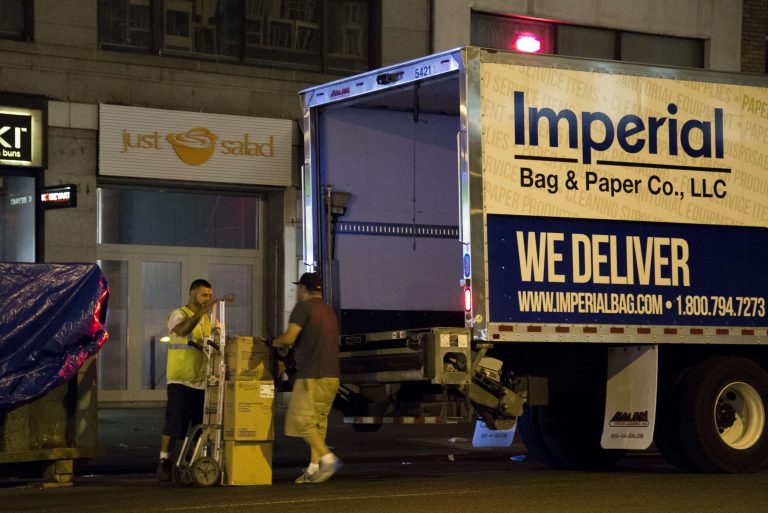Off-Hour Delivery In NYC
START YEAR: 2010
COMPLETION YEAR: 2013
TOPIC(S): Off-Hour Delivery
PRIMARY CONTACT(S):
- José Holguín-Veras,
- Jeffrey Wojtowicz
PARTNER(S):
- New York City Department of Transportation,
- Rutgers University
SPONSORS/FUNDING:
- US Department of Transportation

OVERVIEW
Urban freight transportation is crucial to the quality of modern life, though at the same time it produces significant negative externalities. Despite the relatively small proportion of freight with respect to all traffic, urban freight movements are increasingly recognized as significant forces of influence on urban transportation systems and urban economic vitality. A range of freight system management strategies have been tried and implemented with various degrees of success throughout the world. Some of these strategies are carrier-centered, such as the use of cooperative delivery systems, which change the logistical aspects of carrier operations, but do not affect the actual underlying demand. As a result, their influence tends not to extend beyond carriers, to other aspects of urban transportation systems. At the other end of the spectrum, receiver-centered traffic demand management (TDM) measures attempt to change the nature of the actual demand for the cargo. These policies take advantage of the fact that receivers—by virtue of being the carriers’ customers—have a great deal of power over when and how deliveries are made. Carriers must respect receivers’ wishes if they want to stay in business.
The Off-Hour Delivery (OHD) project is an innovative example of receiver-centered freight TDM. This initiative relies on incentives (financial or otherwise) to induce receivers to accept deliveries in the off-hours (7PM to 6AM). Since the incentives remove the opposition of the receivers, and the carriers are generally in favor, entire supply chains can switch to the off-hours, and the effect of these shifts reverberate through entire supply chains. The NYC OHD project has been implemented in stages. After a successful pilot phase that concluded in 2010, the Research and Innovative Technology (RITA) sponsored implementation phase (Integrative Freight Demand Management in the New York City Metropolitan Area: Implementation Phase) was launched in June 2011. Although this is technically the implementation phase, it should be noted that the term ‘launch phase’ may be more appropriate. The reason for this is that for a proper and successful implementation of an off-hour delivery program a sustained effort over a long period of time is required. After all, the program aims at transforming supply chains, which requires profound modifications of business practices. This report documents the key aspects and findings, impacts and influence of the OHD project, through the implementation phase which concluded in September 2013.
KEY FINDINGS
- Substantial receiver reluctance or opposition to the program was based on the perceived risk associated with vendors having unaccompanied access to their premises while making off-hour deliveries
- Possible effects on the community of noise emissions from delivery operations taking place at night and ways to address the noise issue
- The benefits of targeting receivers in the most congested part of the cities
- A combination of small toll increases, combined with targeted incentives, could have a dramatic effect on urban congestion
KEY PRODUCTS
ADDITIONAL PRODUCTS
CONTRIBUTING TEAM MEMBERS
RELATED PROJECTS
- Development of a Trusted Vendor Program to Support the Off-Hour Delivery Program
